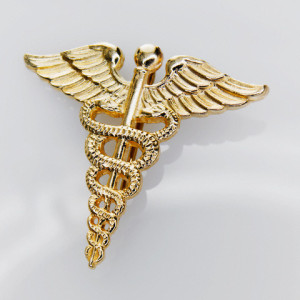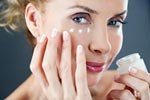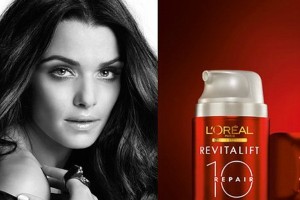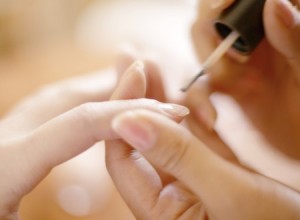Do you know if your Botox is given by a nurse practitioner, an aesthetician (illegal!), an OB/GYN, a dermatologist, or plastic surgeon? Does it even matter? It’s easy to get confused when you’re having a procedure. In fact, if you’re confused about who is really a doctor, you’re not the only one. I hear questions like these every day:
- “Do you have to be an MD to apply peels and do laser?” (No.)
- “Is an otolaryngologist really an MD?” (Yes.)
- “Can my cosmetic dentist really do facelift surgery?” (I suppose, if you are willing to let him/her.)
- “Do I need to see an audiologist or an otolaryngologist for my allergies, and which one is really a doctor?” (The ENT is the MD in this case.)
You, too, may be unsure of who’s an MD and who’s not, and why it matters. According to a 2010 Pew Internet and Ame rican Life Project, 83% of internet users are searching for medical information on-line and 59% of all US adults have looked on-line for health information. Despite this, there is significant documentation to show that patients are confused about who is providing their health care.
rican Life Project, 83% of internet users are searching for medical information on-line and 59% of all US adults have looked on-line for health information. Despite this, there is significant documentation to show that patients are confused about who is providing their health care.
In fact, according to a telephone survey of 852 adults conducted by the Global Strategy Group, 51% of those interviewed believed that it is not “…easy to identify who is a licensed medical doctor and who is not.” For example, only 32% of those surveyed thought an Otolaryngologist is a medical doctor (I am!), yet 33% believed that an audiologist is a medical doctor (she/he is NOT)! Similar confusion surrounded many other areas, including whether podiatrists and psychologists were MDs.
This widespread confusion and public ignorance may well be the result of the managed care companies’ ubiquitous and interchangeable use of the term “provider.” It leads to the public’s mistrust of the medical establishment and inhibits the public’s ability to make informed choices about their healthcare.
Knowing your provider’s background, training, experience, and expertise can help you become more comfortable and certain of your choice of medical expert. You wouldn’t want to end up with a C-section instead of a facelift!
Don’t be shy…if you’re not sure, be sure to ask. Don’t let the healthcare insurers confuse you. Get the right information and be empowered with knowledge!
 Are you looking for a good female diagnostician? It turns out many Americans are. But if you also skip your doctor’s visit and simply “google” your symptoms for diagnosis you might want to know this: according to a recent study, 35% of American adults said they went online to diagnose a medical condition for themselves or someone else. But Dr. Google is not a substitute for the real thing. While it’s cheaper than going in-network, the ultimate cost may be higher if you end up with the wrong diagnosis.
Are you looking for a good female diagnostician? It turns out many Americans are. But if you also skip your doctor’s visit and simply “google” your symptoms for diagnosis you might want to know this: according to a recent study, 35% of American adults said they went online to diagnose a medical condition for themselves or someone else. But Dr. Google is not a substitute for the real thing. While it’s cheaper than going in-network, the ultimate cost may be higher if you end up with the wrong diagnosis.
































 Oscar-winning actress Rachel Weisz’s commercial for L’Oréal was banned in the UK for being misleading.
Oscar-winning actress Rachel Weisz’s commercial for L’Oréal was banned in the UK for being misleading. 
 regimens. After all, they’re famous and alluring-we want to hear what tricks they’ve got up their sleeves! But it’s important to be aware that their advice may not be medically sound. From royal sister Pippa Middleton’s comment about using a cold rinse to “close the pores” of her hair and “give it a lift and shine” (hair doesn’t have pores!) to actress Juliette Lewis’s assertion that “coconut water is pretty much the most hydrating thing you can drink” (try water!) to supermodel Gisele Bundchen’s vehement hatred of “synthetic” sunscreens (even though they are rigorously tested and safe), these ladies are full of well-meaning quips for healthier lifestyles-but they’re not exactly authorities on these topics.
regimens. After all, they’re famous and alluring-we want to hear what tricks they’ve got up their sleeves! But it’s important to be aware that their advice may not be medically sound. From royal sister Pippa Middleton’s comment about using a cold rinse to “close the pores” of her hair and “give it a lift and shine” (hair doesn’t have pores!) to actress Juliette Lewis’s assertion that “coconut water is pretty much the most hydrating thing you can drink” (try water!) to supermodel Gisele Bundchen’s vehement hatred of “synthetic” sunscreens (even though they are rigorously tested and safe), these ladies are full of well-meaning quips for healthier lifestyles-but they’re not exactly authorities on these topics. rican Life Project, 83% of internet users are searching for medical information on-line and 59% of all US adults have looked on-line for health information. Despite this, there is significant documentation to show that patients are confused about who is providing their health care.
rican Life Project, 83% of internet users are searching for medical information on-line and 59% of all US adults have looked on-line for health information. Despite this, there is significant documentation to show that patients are confused about who is providing their health care.